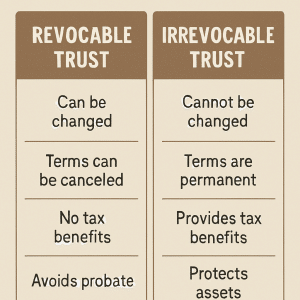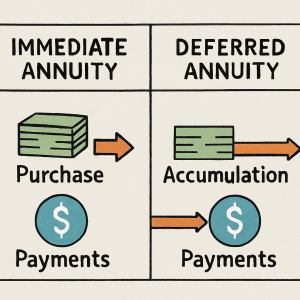What is the best age to begin taking Social Security Benefits?
You can begin taking your Social Security Benefits once you’ve reached the age of 62; however, there is a penalty for claiming Social Security prior to your Full Retirement Age (FRA). In this article, we will discuss key points to consider when deciding how and when to file for Social Security.
Below are definitions of two key terms you’ll need to know when considering social security optimization strategies:
Primary Insurance Amount:
100% of your Social Security Benefit without reductions.
Full Retirement Age (FRA):
The age at which you become eligible to receive 100% of your benefit or your Primary Insurance Amount.
What is my Full Retirement Age for Social Security?
To begin planning your Social Security withdrawal strategy you will need to know your Full Retirement Age (FRA). “Full retirement age” used to be 65 for everyone; however, it now varies based on what year you were born.
If you were born after 1951, you’ll be eligible to receive your full benefit somewhere between the ages of 65 and 67. Use the chart below to check when you become eligible to receive 100% of your benefit.

Social Security Optimization
You can begin taking social security as early as age 62 as long as you have attained the minimum of 10 qualifying working years. If you elect to begin getting your monthly checks from Uncle Sam up to 36 months before your FRA, your monthly benefit will be reduced by 5/9’ths of 1% each month.
If you begin payments more than 36 months prior to your FRA, your benefit will be reduced by 5/12’s of 1% during those months. These may seem like small numbers but remember the reduction will last for the length of your retirement.
Let’s look at an example:
Assume your full retirement age is 66 and you elect to begin receiving your benefits at age 62.
This would be 48 months early so you would have a reduction equal to (36 months X 5/12’s of 1%) + (12 months X 5/12’s of 1%). Leaving you with a reduction an overall, permanent reduction of benefits of 25%.
Begin Social Security Benefits After my FRA?
You are rewarded with a higher benefit should you delay beyond your full retirement age. Your income amount will increase by 8% annually up to the age of 70. Once you have attained age 70 there is no longer reason to delay as your benefit is as high as it will ever be.
If you are working beyond the normal retirement age it may be a wise decision to defer taking your benefits. In addition, if you have other assets you can use to bridge the gap between full retirement age and 70, it may be worth considering delaying to age 70 in that scenario as well.
Each additional year deferred up to age 70 your benefits increase by 8%. Consider the same scenario above, you are age 66 but defer until age 68. In this instance, your benefit at age 68 would be 16% greater than it was at 66.
An 8% guaranteed rate of return is impossible to get in today’s rate environment. Because of this, electing benefits at the age of 70 is one way to maximize social security benefits.
If you are not employed at the time between retirement and age 70 you may consider converting some of your individual retirement account funds into a Roth.
Paying taxes on your IRA at a time when you are in the lowest tax bracket will yield benefits down the road. Often, we recommend you convert enough each year to almost touch the next tax bracket above you. This concept is referred to as “bracket-bumping” and may warrant consideration.
Where can I get my Social Security income statement?
The Social Security Administration no longer mails out annual Social Security Statements. However, you can quickly and easily get a copy of your statement on their website: SSA.gov login. The statement will list your projected benefit at ages 62, 66, and 70.
You can read our Beginners Guide to Income Annuities to learn how an annuity can create a guaranteed level of lifetime income.
Optimizing Your Social Security Benefits
- Insufficient assets. For one reason or another, you may have to retire earlier than anticipated. In the chart below you can see that 47% of respondents to the “Reclaiming the Future Study” had to retire earlier than expected. In scenarios such as these, you may be forced to take the benefits prior to full retirement age.
- To estimate your social security benefits and calculate a break-even age you can use this Social Security Calculator on the official social security website. You will need to assume a rate of return you could earn on benefits if electing early (opportunity cost) as well as taxes.
- For a quick estimate of your social security benefits, they also provide a Quick Social Security Calculator. If you do not feel like the age in which delaying payments turns to your favor is realistic then electing to receive your social security benefits early may make the most sense for you.
- Spousal Benefit considerations. If you have a spouse covered by Social Security, you can explore additional strategies to maximize the benefits you receive between you. Start by taking your spouse’s age, health, and benefits into account, particularly if you are a higher-earning spouse.
- The number of survivor benefits for a lower-earning spouse could depend on the deceased, higher-earning spouse’s benefit—the bigger the higher-earning spouse’s benefit, the bigger the benefit for the surviving spouse.
- Whether you are still working. Earning a wage (or even self-employment income) can reduce your benefit temporarily if you take Social Security early. If you’re still working and you haven’t reached your full retirement age, $1 in benefits will be deducted for every $2 you earn above the annual limit ($17,640 in 2019).

Social Security Spousal Benefits?
There are not any “loopholes” for spousal benefits unless you are grandfathered in based on year of birth, then the file and suspend Social Security Strategy may be considered a “loophole” by some. Below are social security spousal benefit strategies that are still applicable to everyone.
Social Security Strategies for Married Couples:
For spouses with equivalent work histories and life expectancy, it may make sense for both to delay their benefits up to age 70, if possible. In other cases, especially when there is a big difference between work history, it might make sense for the lower-earning spouse to file earlier while the higher-earner waits until age 70. This is called a 62/70 split strategy.
62/70 split strategy:
With this strategy, the lower earner files early at age 62 (or at full retirement age) based on his or her own benefit. The higher earner later files at age 70.
When a lower-earning spouse files for spousal benefits at age 62, the benefits are reduced based on the number of months before full retirement age. If the higher earner has not yet filed, the reduced benefit will be based on the early filer’s own earnings record.
If the higher earner has already filed for spousal benefits at his or her own full retirement age, the lower earner would receive an amount equal to 35% of the higher earner’s full retirement age benefit or their own benefit whichever is greater.
Even though an early-filing penalty would still apply to any benefits the lower-earning spouse received before full retirement age (whether they’re calculated based on that spouse’s own earnings record or the higher-earning spouse’s record), in the event of the spouse’s death, the surviving spouse would be entitled to their own, or their spouse’s benefit, whichever is higher.
In the meantime, the lower earner can still collect something while the higher earner waits until age 70 for maximum benefit.
File and Suspend SS Claiming Strategy:
Up until a couple of years ago, you were allowed to use a strategy under which the higher-earning spouse would file and suspend their benefit at full retirement age and then wait until age 70 to start collecting, so their partner could claim a spousal benefit. However, that strategy is no longer permitted.
In addition, unless you turned 62 before Jan. 1, 2016, you can no longer file a “restricted application” to claim a spousal benefit. If you are grandfathered into this option, however, you can still consider this option.
Here is how it works: At full retirement age, the lower earner could file for his or her own benefit, while the higher earner would file a restricted application for spousal benefits. The higher earner would then wait until age 70 to switch to his or her own benefit, at which time the lower earner would switch to a spousal benefit, if higher than their own.
The process of trying to optimize your Social Security benefits over a joint lifespan can be complex. We recommend consulting with a financial advisor or tax accountant o provide an assessment and help with options.
Coordination of Benefits
As a married couple, you may be able to coordinate the timing of when each spouse starts taking benefits, which may help generate a stream of benefits that are aligned with your income needs and goals.
For example, one spouse may choose to collect benefits at his/her Full Retirement Age, while the other spouse may choose to wait until age 70 to collect.
The Future of Social Security?
Are you skeptical about the future of Social Security or wary of potential changes such as means-testing—which could reduce or eliminate benefits for the wealthy—or an increase in the full retirement age? If so, you may be tempted to start benefits early, under the assumption that it’s better to have a bird in the hand than nothing.
The 2019 annual report from the Social Security Trustees projects that the Social Security Trust Fund has enough resources to cover all promised retirement benefits until 2035 without changing the current system.
Over the longer term, changes such as later benefit dates or means testing (a reduction in benefits based on your other income sources) may be considered. In any situation, if you are particularly concerned about the future of Social Security, that is a good reason to save more, earlier, for your retirement.
Should I Begin Taking Social Security Sooner or Later?
When to consider taking benefits prior to full retirement age?
- You are in poor health.
- You plan to work up until full retirement age.
- You are the lower-income earner and have a spouse who can delay their benefit.
Waiting to full retirement age often makes sense when:
You are still blessed with good health and plan to live a long and healthy retirement.
You plan to work to your full retirement age and make enough where your Social Security benefits would reduce your earnings. Remember, once you attain your full retirement age there is no penalty for additional earnings.
You are the higher income earner and want to ensure that your surviving spouse has the highest benefit possible should you pass first.
Conclusion & Recommendations
If you are in good health and are financially able to defer benefits you should strongly consider waiting to as close to age 70 as you can.
Utilizing tax-efficient spend-down strategies while delaying social security coupled with a guaranteed 8% annual increase may prove to be a wise decision in your later years. Waiting to full retirement age often makes sense when:
- You are still blessed with good health and plan to live a long and healthy retirement.
- You plan to work to your full retirement age and make enough where your Social Security benefits would reduce your earnings. Remember, once you attain your full retirement age there is no penalty for additional earnings.
- You are the higher income earner and want to ensure that your surviving spouse has the highest benefit possible should you pass first.

















